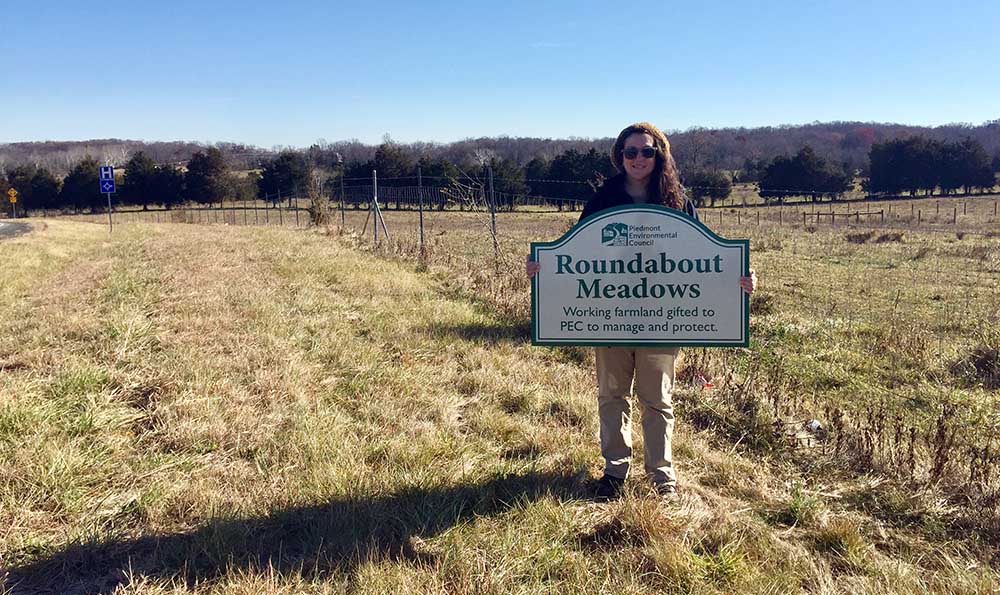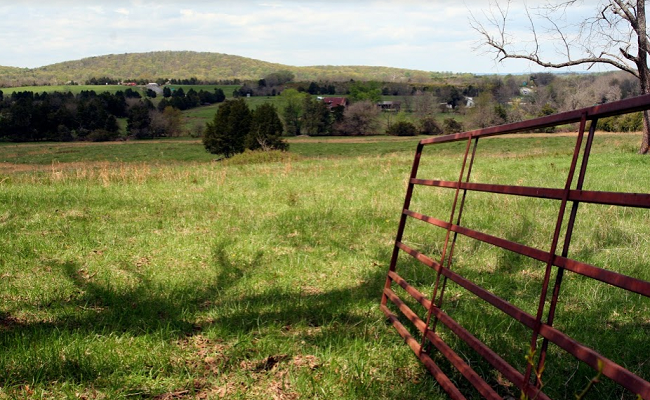
Food brings people together. But healthy food is sometimes hard to come by. Despite Loudoun County’s reputation as a wealthy community, a surprising number of children in the county — one in 10 — live in households with limited access to healthy food. The consequences can be stark for these children, as their development, ability to learn and overall health is directly related to the quality of their diet.
“The notion that there are around 10,000 children in Loudoun facing a chronic lack of access to sufficient nutritious food is troubling, both as a parent and as someone that knows the bounty that Loudoun County has to offer,” says Chris Miller, PEC’s President. “It left me thinking about what resources we could bring to the table. If we can stretch a little, what can we do to educate local residents and contribute to a solution.”
An inspiration for addressing food insecurity in Loudoun came to Chris through his involvement with the Fauquier Education Farm, based on 10 acres outside of Warrenton. The Fauquier Education Farm recruits volunteers to plant, harvest and pack fresh produce for those in need. This past growing season, more than 60,000 pounds of produce were delivered by the farm to food-insecure residents in Fauquier, Culpeper and Rappahannock Counties.
The impact of the Fauquier Education Farm presented a possible model for PEC to make a difference in Loudoun County. Over the past couple years, we have worked to restore and reinvigorate the productivity of our Roundabout Meadows property, a 141-acre farm at Gilbert’s Corner in Loudoun County. Over this past year, we took a closer look at the feasibility of creating a Roundabout Meadows community farm on part of the land, which would partner with food pantries and other community organizations in Loudoun to increase the availability of fresh produce for those in need. Like the Fauquier Education Farm, this community farm would seek out community service organizations and other volunteers to “get their hands dirty” and help produce food for others.
Key to our assessment was outreach to food pantry operators, such as Loudoun Hunger and other allied nongovernmental organizations (NGOs) that already work to address chronic food insecurity among vulnerable populations in the county. We wanted to see if others thought a modest community farm at Roundabout Meadows would make a difference. The answer to that question was a resounding “Yes.”
Currently, food pantries contract with or receive donations of fresh produce from farms, grocery stores and larger food banks. But, a common theme among these organizations was the need to offer more fresh food to their clients. This recognition has focused the attention of county-wide hunger relief efforts by expanding the availability of wholesome, fresh, locally-produced fruits and vegetables. And this demand for fresh produce remains unmet.
We envision our community farm being sited at the northwest corner of Roundabout Meadows, an area planned in PEC’s five-year management plan for future fruit and vegetable production because of the quality of the underlying soils. We have been fortunate over the past year to receive guidance from Ellen Polishuk, formerly of Potomac Vegetable Farms, in developing a growing plan and identify infrastructure needs. We plan to employ produce variety trials, cover crop practices and other sustainable farming techniques as demonstration projects.

The first growing season of the community farm is scheduled to begin in spring 2018. We will be starting small, beginning with just a portion of three acres that were cleared this fall for future production. A limited start reflects the need to first secure necessary infrastructure and equipment, and it helps provide time to rejuvenate the productivity of the soils. However, our feasibility study for the community farm envisions scaling up production and public education programming over the next five years.
It’s exhilarating to think about the possibilities of a community farm operation at Roundabout Meadows. With the property’s high visibility, good access and close proximity to Loudoun’s population centers, the community farm presents an incredible opportunity for local residents to get on the land and see firsthand the connection between land conservation, natural resource stewardship and the food we eat. More importantly, visitors and volunteers can have that experience while in service to those in need.
This article was written by PEC’s director of land conservation, Mike Kane, and featured in our Winter 2017 Member Newsletter, The Piedmont View. You can read more of the articles on our website or view a PDF of the issue.
